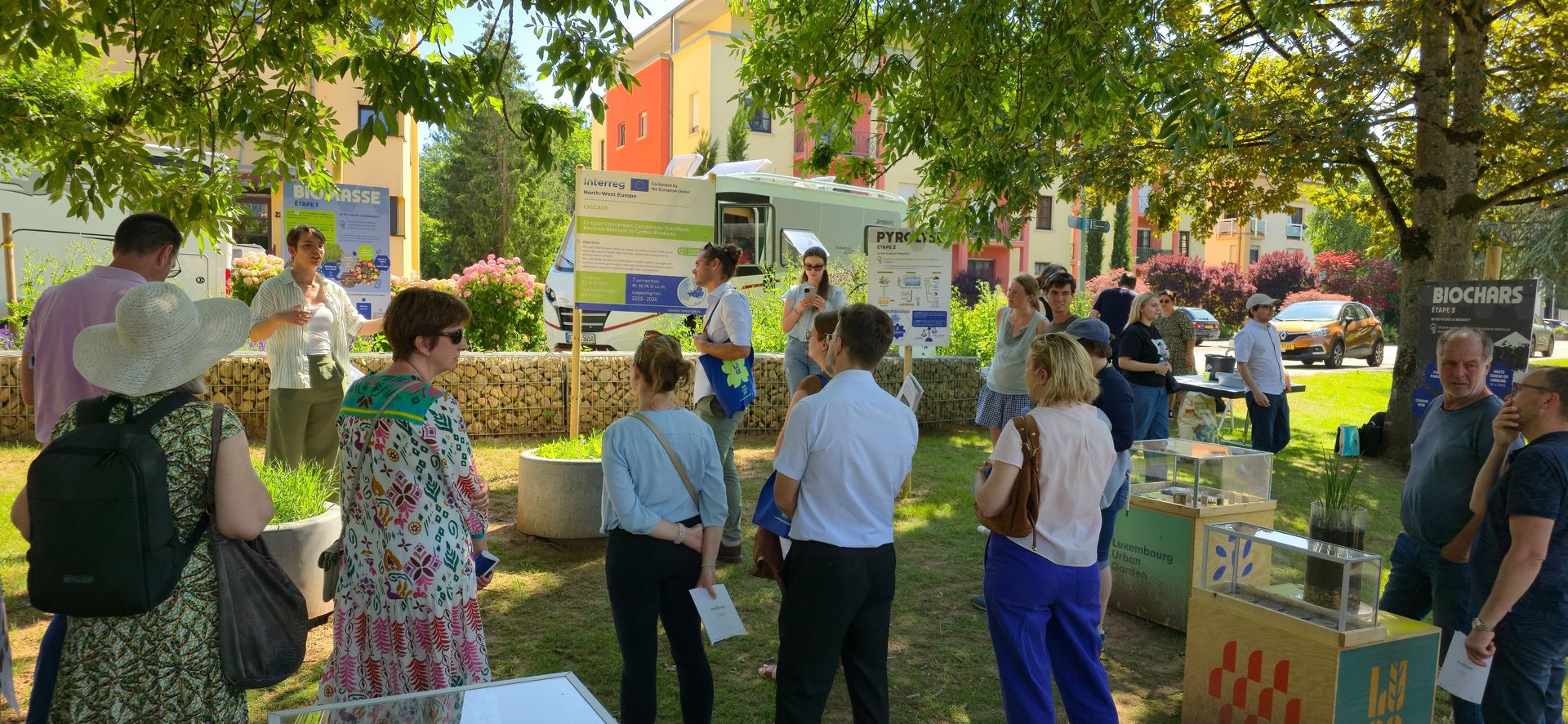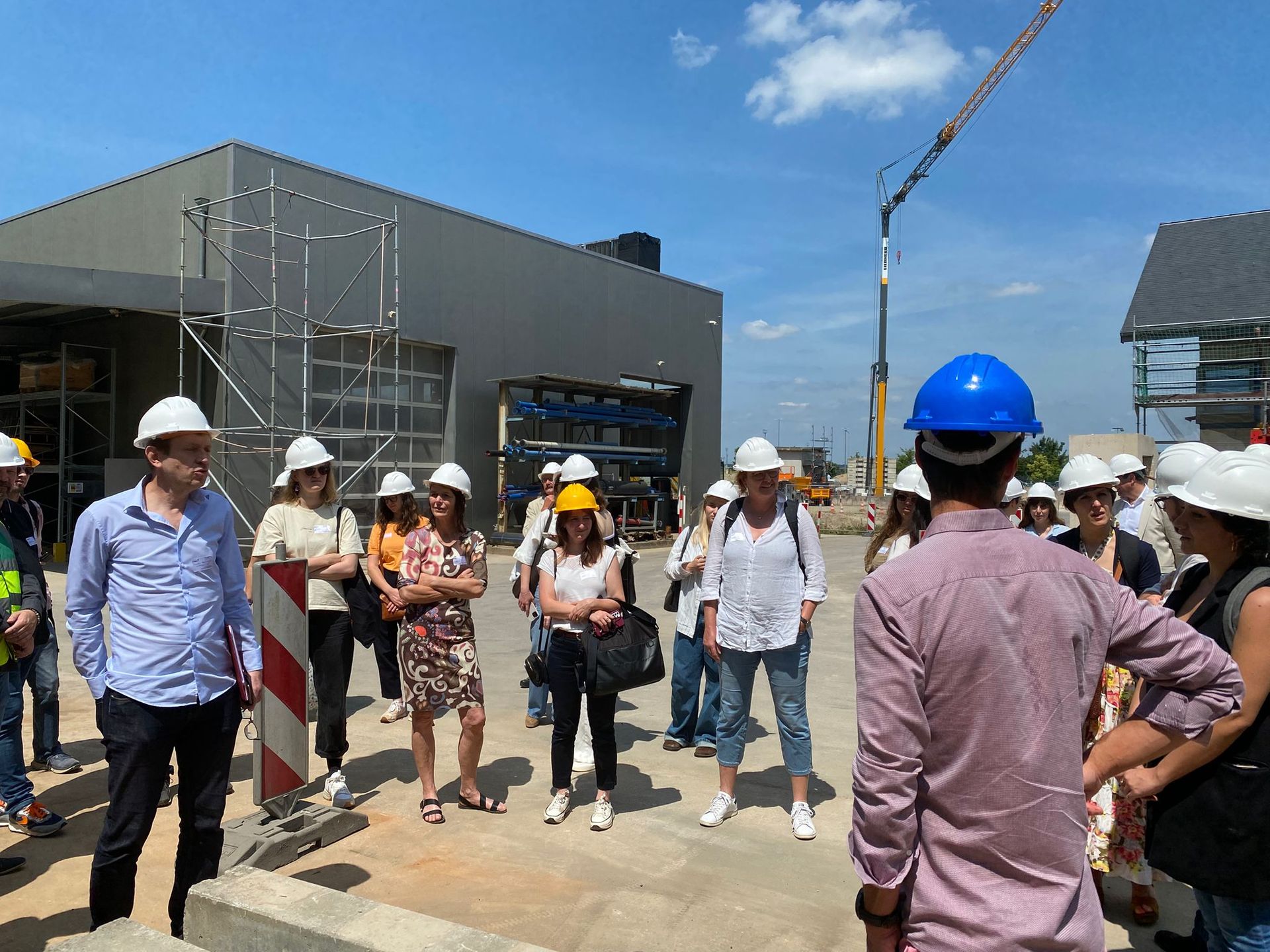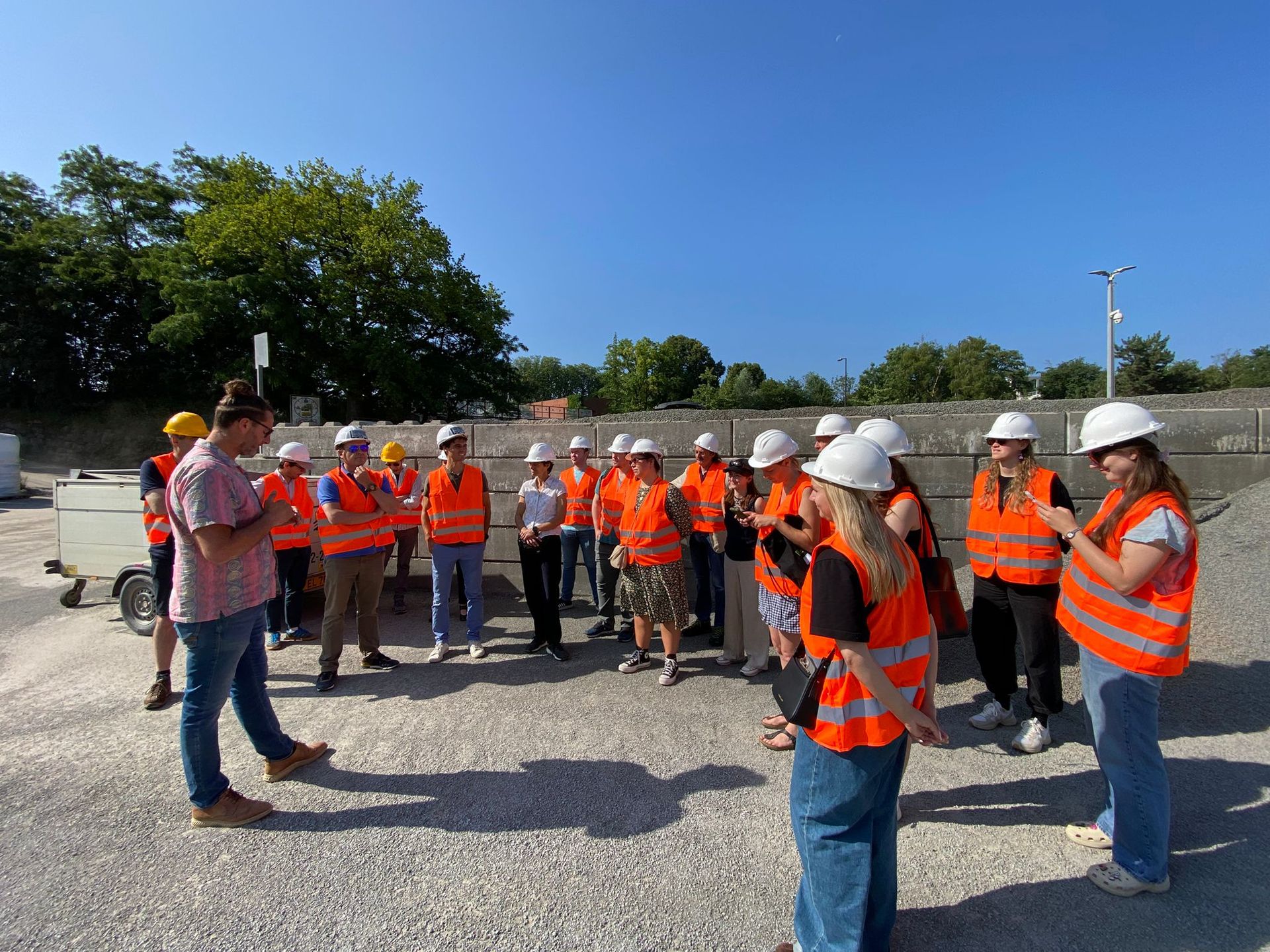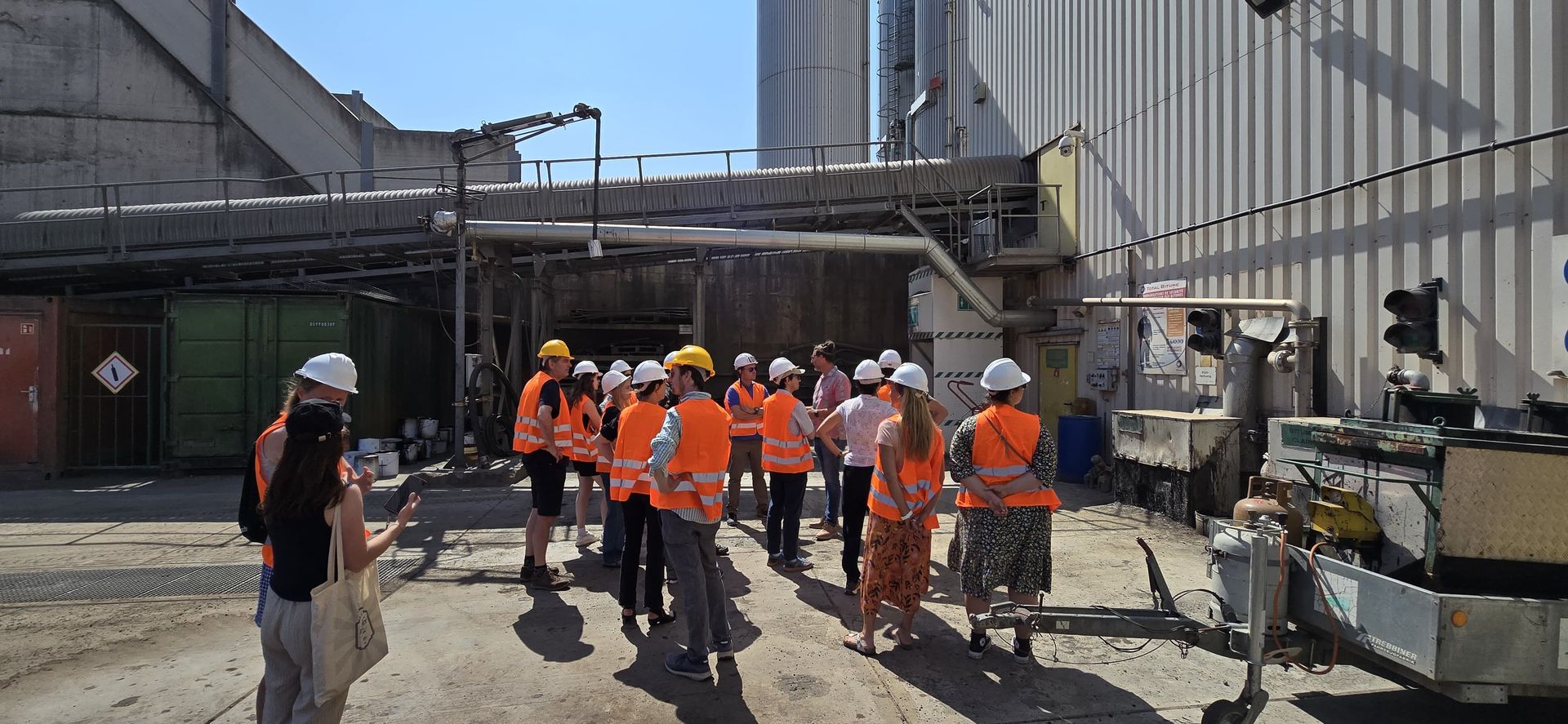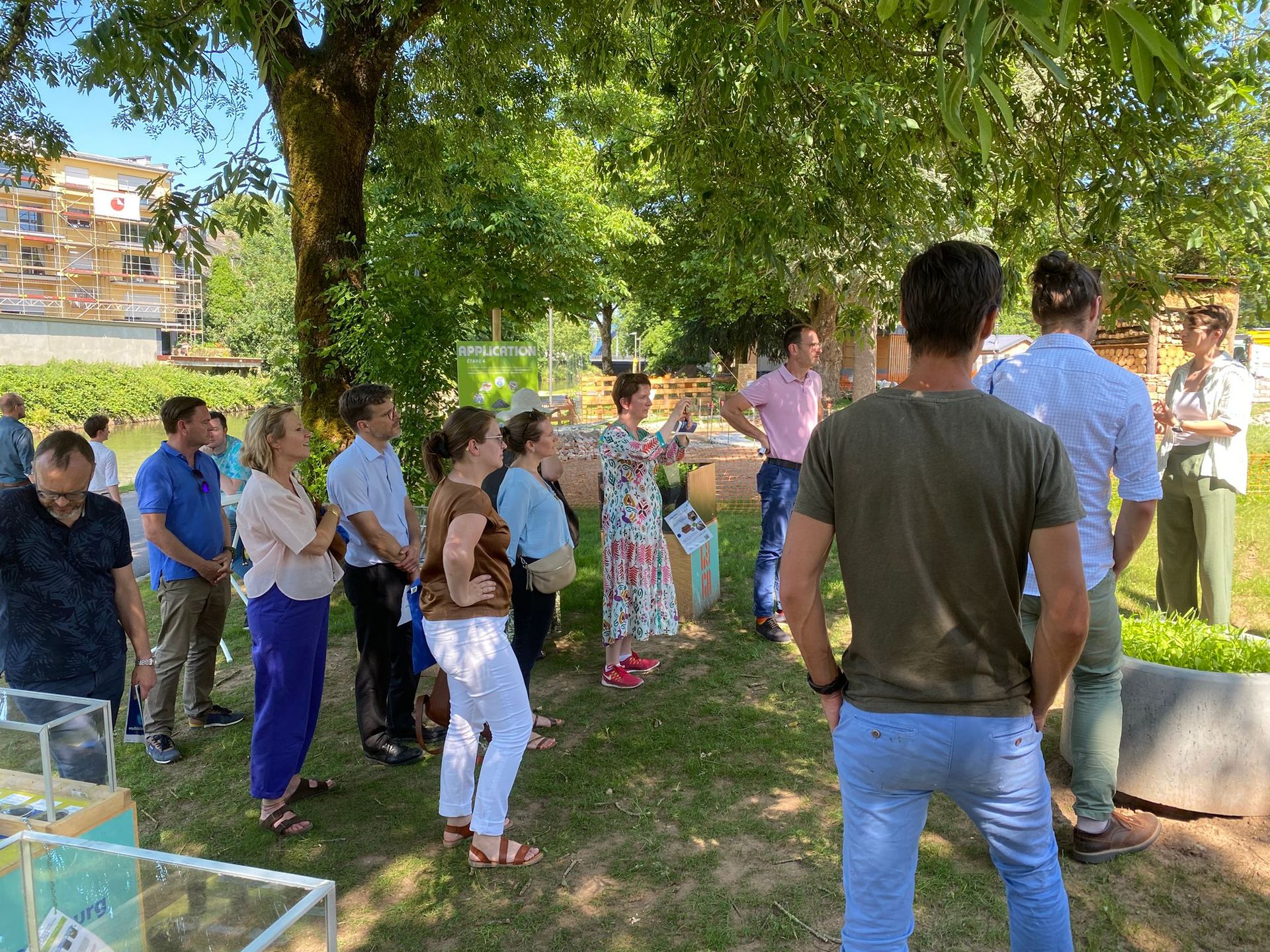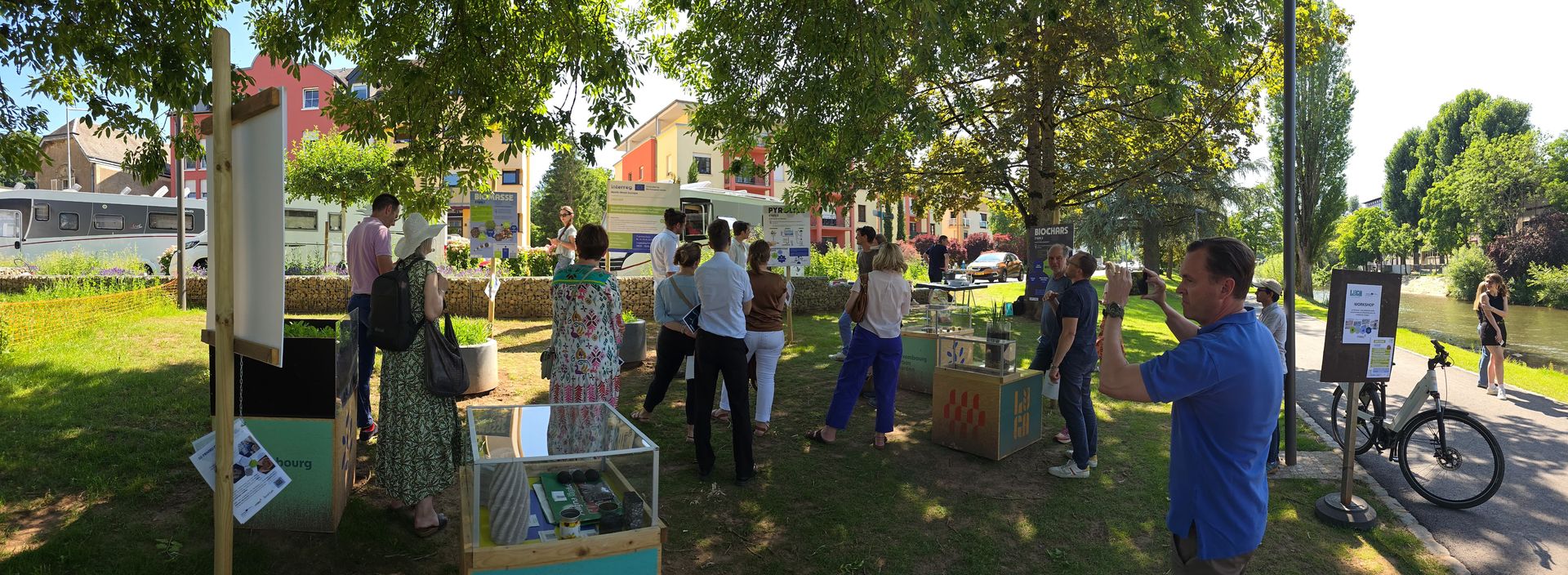In June 2025, Luxembourg hosted an event dedicated to biochar innovation in urban sustainability and construction, organised as part of the collaboration between the B4C and CASCADE projects. The event, held at the IFSB in Bettembourg, brought together more than 40 participants, including researchers, companies, and public authorities, to discuss biochar’s role in advancing the circular carbon economy.
From Asphalt Pilots to Urban Greening
A major highlight was the first asphalt pilot using biochar, successfully implemented on 3 June at the IFSB site. This demonstrator illustrated how biochar can be integrated into road materials, supporting Luxembourg’s ambition to reduce carbon emissions in infrastructure. Discussions also explored future business models for scaling biochar production locally, with contributions from partners such as Novocarbo, Carbuna, and Karp Kneip.
The event also connected to the LUGA exhibition in Ettelbruck, where visitors could see practical prototypes such as:
- Flowerpots made from biochar-concrete (Contern S.A.)
- 3D-printed bricks of biochar and clay (AERD Lab)
- Green roofs with biochar substrates (Duboisdendien SARL)
- Biochar-based water filtration prototypes (University of Luxembourg)
These demonstrations highlighted biochar’s
versatility — from construction and soil improvement to water management and
urban greening.
Great stories are for everyone even when only written for just one person. If you try to write with a wide, general audience in mind, your story will sound fake and lack emotion. No one will be interested. Write for one person. If it’s genuine for the one, it’s genuine for the rest.
Building Networks and Overcoming Challenges
Alongside demonstrations, the event fostered valuable dialogue among stakeholders, including Luxembourg’s Ministry of Agriculture, the Administration of Public Works, and municipalities such as Differdange. Collaboration with UniLaSalle, the University of Liège, and other partners ensured that scientific expertise and practical testing came together.
At the same time, the pilots revealed challenges: lack of local biochar production, inconsistent quality standards, and packaging issues complicated integration into asphalt. Addressing these barriers will be crucial for scaling biochar applications in Luxembourg and beyond.
A Step Forward
By combining conference sessions, site visits, and the public-facing LUGA exhibition, the June event showcased how research, practice, and policy can align to make biochar a cornerstone of sustainable cities. With pilots now underway and networks expanding, Luxembourg is positioning itself as a testing ground for carbon-smart infrastructure.
